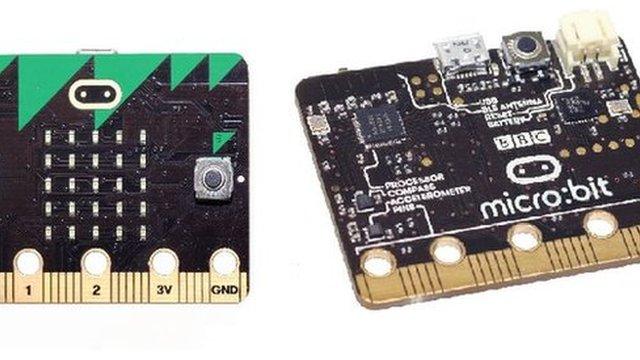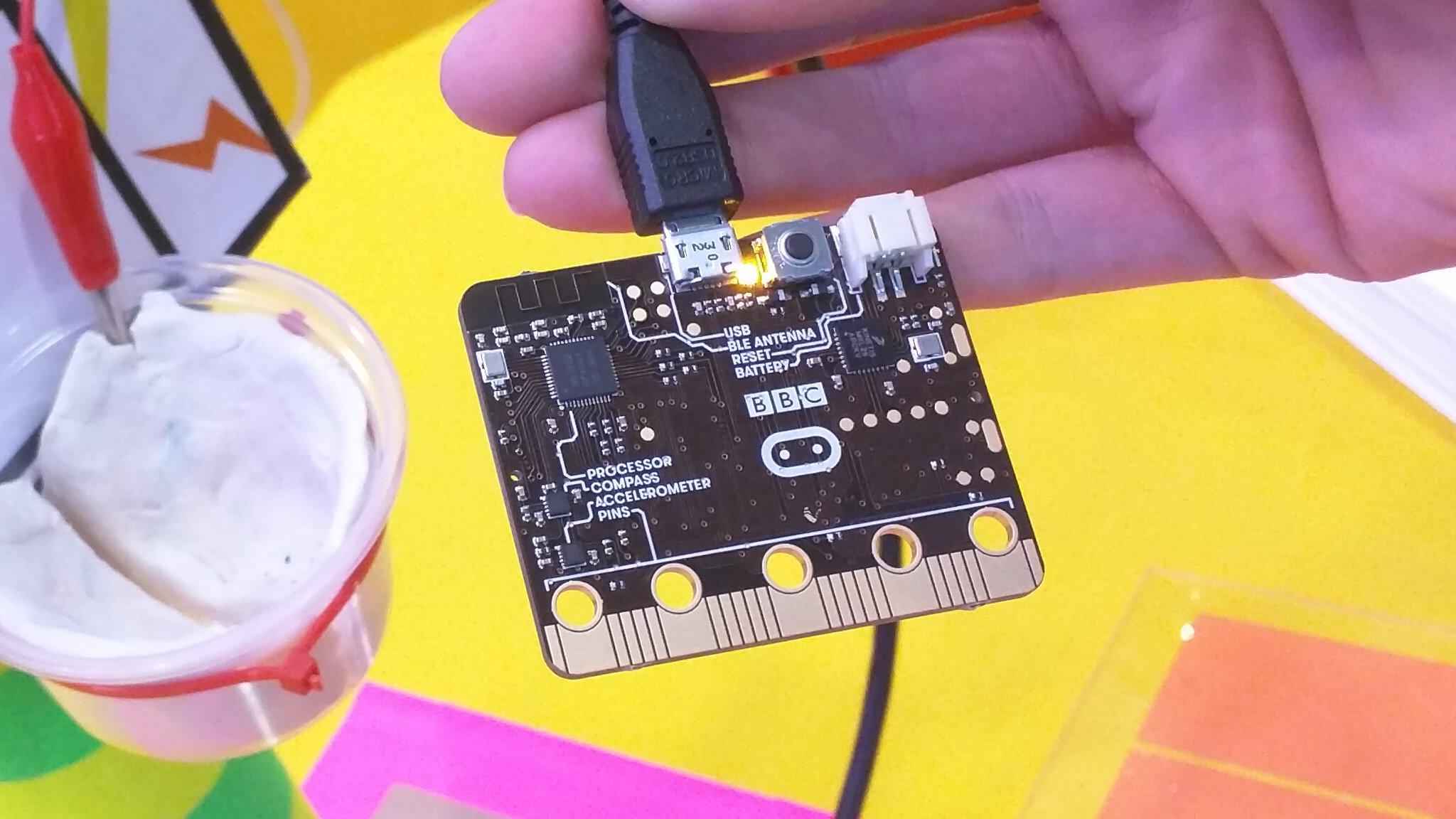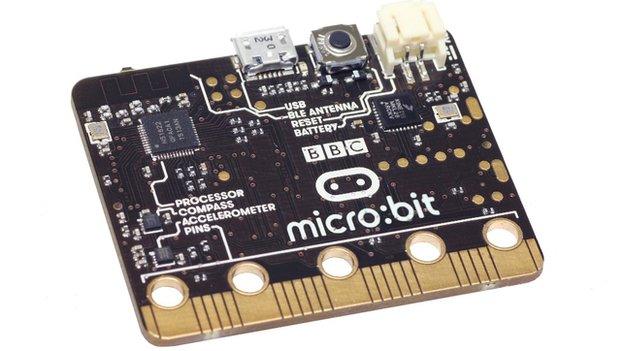BBC says Micro Bit rollout will be delayed
- Published

The Micro Bit no longer contains a slot for a watch battery, which was featured in a prototype
The BBC's Micro Bit computer, due to be given to one million schoolchildren in October, has been delayed, the corporation has acknowledged.
An issue with its power supply meant it would now be sent out "after Christmas", said a spokesman.
The tiny computer has been designed to boost interest in coding.
The problem had "affected a small number of devices", the spokesman said, but the priority was making sure it was as robust and reliable as possible.
"We're expecting to start sending them out to teachers before Christmas and to children early in the new year," said a BBC spokesman
"As a result of our rigorous testing process, we've decided to make some minor revisions to the device - getting it right for children and teachers before we manufacture one million units is our priority."
New generation
The Micro Bit was unveiled in March and since then has added features including a built-in motion sensor.
Up to one million Year 7 pupils (aged 11 and 12) will be given the Micro Bit.
The pocket-sized codeable computer is the BBC's most ambitious education initiative for 30 years. In the 1980s, the BBC launched the Micro, which introduced many children to computing.
BBC director general Tony Hall hopes the Micro Bit will "equip a new generation with the digital skills they need to find jobs and help grow the UK economy".
The push to persuade more children to get involved in computing and coding comes as the UK faces a critical skills shortage in the technology sector.
The Micro Bit is a collaboration between 29 partners including Barclays, Microsoft, Samsung and Lancaster University.
Product champions, including Cisco, Code Club and Teen Tech, are helping provide educational resources.
- Published8 July 2015

- Published7 July 2015
- Published7 July 2015
